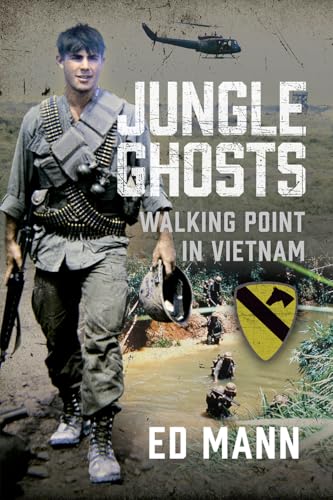
Quang Tri Cadence
by Jon Oplinger
"Memoir of a Rifle Platoon Leader in the Mountains of Vietnam"
Popularity
4.07 / 5
* A book's popularity is determined by how it compares to all other books on this website.
Where to buy?
Buy from Amazon* If you buy this book through the link above, we may receive a small commission at no extra cost to you.
Quang Tri Cadence by Jon Oplinger
Details
War:
Vietnam War
Perspective:
Infantry
Military Unit:
US Army
True Story:
Yes
Biography:
Yes
Region:
Asia
Page Count:
221
Published Date:
2016
ISBN13:
9781476626840
Description
Brief Summary
Quang Tri Cadence by Jon Oplinger is a gripping memoir that follows the author's journey from a college dropout to a rifle platoon leader during the Vietnam War. Serving in the U.S. Army's First Cavalry Division, Oplinger provides a raw, ground-level portrayal of life in a rifle platoon amid the whirlwind of combat. The narrative is anchored in the direct experiences and visceral realities of the battlefield, drawn from original maps and recently declassified battalion radio logs. His account extends beyond the war, encapsulating his experiences surrounding the Kent State University shootings in 1970. This book offers an unflinching look at both the chaos of war and the complexities of returning to civilian life.
Main Themes and Topics
The main themes of Quang Tri Cadence revolve around the brutality and unpredictability of war, as well as the psychological toll it takes on individuals. Oplinger delves into the ordinary yet harrowing experiences of being "in the field," portraying the grit and fear that accompany soldiers on the front lines. The book also touches on the theme of disillusionment, both on the battlefield and upon returning home, capturing the complex emotions involved in reintegrating into civilian life. The recounting of the author's time at Kent State University highlights the domestic turmoil and cultural shifts occurring in America during that era.
Writing Style and Tone
Jon Oplinger writes with a straightforward, unembellished style that serves to underscore the authenticity and immediacy of his experiences. His tone is reflective and occasionally somber, with moments of terse humor that highlight the absurdities faced by soldiers. The writing is imbued with a sense of realism, largely due to Oplinger's reliance on primary sources such as maps and radio logs. His vivid descriptions and candid reflections allow readers to fully grasp the dire realities of war while maintaining a deeply personal connection to the narrative.









